Thanksgiving Day
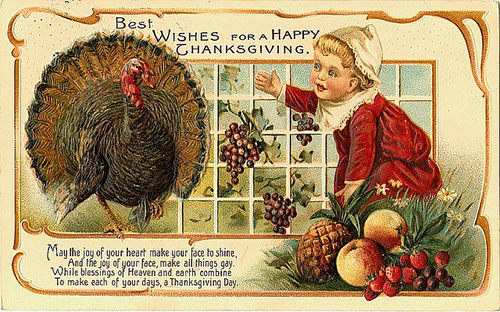 A Brief History of Thanksgiving
A Brief History of Thanksgiving
Thanksgiving is a national holiday in the United States. It is celebrated each year on the fourth Thursday in November. On this day, families gather together, and many people say prayers of thanks for the years blessings. In many homes, a big dinner of roast turkey and dressing is served. Thanksgiving is traditionally a harvest festival. Similar festivals are celebrated in many parts of the world to give thanks after the years crops have been safely harvested. Canada celebrates its Thanksgiving the second Monday in October.
A small ship called the Mayflower set sail from Plymouth, England, on September 16, 1620. The passengers spent 66 days in the hold of the ship arriving on November 21.
Most of them were Puritans who had been persecuted for their religious beliefs in England. One month later, on December 26, all 102 passengers set foot on land and began to establish the colony of Plymouth. The Pilgrims, as these people came to be called, had borrowed money from a group of English merchants to cross the Atlantic Ocean. They planned to start a settlement in the Virginia Colony in America, but during the long voyage, storms blew their crowded little vessel off course.

After sailing for more than two months, the Mayflower finally reached land near what is now Provincetown on Cape Cod. This part of the American coast, called New England, had been explored several years earlier by an Englishman named Capt. John Smith. The Pilgrims followed Smith’s maps and sailed across Cape Cod Bay to the mainland coast of Massachusetts.
They founded the Colony of Plymouth in December 1620. Most of the Pilgrims had suffered terribly from the long voyage. They immediately began to build shelters, but soon they were overcome by a general sickness. Through the course of the winter 46 died, nearly half their original number. Some who became ill on the voyage and who were too sick to be moved stayed on the Mayflower, which was anchored in Plymouth Harbor for the winter.
The Mayflower had been a cargo ship and had to be refitted to handle the Pilgrim passengers. It had three masts and a double deck. No one is sure of what happened to the original Mayflower after it returned to England the following April. A replica of the original Mayflower was built in England in the mid-1950’s. This ship, Mayflower II, sailed across the Atlantic in 1957 to commemorate the Pilgrim’s voyage. It is now anchored in Plymouth Harbor, Massachusetts.

The first American Thanksgiving probably took place in New England. It was celebrated by the Pilgrim settlers, who established Plymouth Colony in Massachusetts in 1620. The Pilgrims had struggled bravely through a grim winter with much sickness and little food.
The following spring, friendly Indians helped the settlers to plant corn, and in the autumn, the first crop was harvested. Governor William Bradford proclaimed three days of prayer and thanksgiving. The Pilgrims gave a huge feast and invited the Indian Chief, Massosoit, and 90 of his people.
The custom of observing a special harvest thanksgiving day spread throughout the other colonies in the following years. After the American Revolution, the various states continued the custom, each one naming it’s own day for giving thanks. In 1863, President Abraham Lincoln proclaimed the first national Thanksgiving Day on the last Thursday in November. The present date was established by Congress in 1941.
Guy Fawkes Day
Guy Fawkes Day in United Kingdom
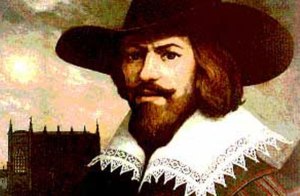 Guy Fawkes Night is annually held on November 5. It is sometimes known as Bonfire Night and marks the anniversary of the discovery of a plot organized by Catholic conspirators to blow up the Houses of Parliament in London in 1605. Many people light bonfires and set off fireworks.
Guy Fawkes Night is annually held on November 5. It is sometimes known as Bonfire Night and marks the anniversary of the discovery of a plot organized by Catholic conspirators to blow up the Houses of Parliament in London in 1605. Many people light bonfires and set off fireworks.

Many people light bonfires and set off fireworks. As it is the end of autumn, it is the ideal opportunity to burn garden rubbish. Some light small bonfires in their own gardens, while other light larger ones in a communal space. In some towns and cities, the municipality organizes a bonfire and professional firework display in a park. These tend to be very popular. Due to its proximity to Halloween, many people organize a combined party for Guy Fawkes Night and Halloween. These parties often include elements from both festivals, such as a bonfire and dressing up in spooky outfits. Popular foods include toffee apples, bonfire toffee and potatoes baked in the ashes of the fire.
The Fifth of November
Remember, remember!
The fifth of November,
The Gunpowder treason and plot;
I know of no reason
Why the Gunpowder treason
Should ever be forgot!
Guy Fawkes and his companions
Did the scheme contrive,
To blow the King and Parliament
All up alive.
Threescore barrels, laid below,
To prove old England’s overthrow.
But, by God’s providence, him they catch,
With a dark lantern, lighting a match!
A stick and a stake
For King James’s sake!
If you won’t give me one,
I’ll take two,
The better for me,
And the worse for you.
A rope, a rope, to hang the Pope,
A penn’orth of cheese to choke him,
A pint of beer to wash it down,
And a jolly good fire to burn him.
Holloa, boys! holloa, boys! make the bells ring!
Holloa, boys! holloa boys! God save the King!
Hip, hip, hooor-r-r-ray!
Intercambio Escolar Septiembre-Octubre 2015 Norderstedt (Hamburgo)-San Antonio de Benagéber
Os dejamos unas cuantas fotos de los días que pasamos en Hamburgo (Alemania) en el mes de Septiembre y en Valencia en el mes de Octubre.
Esperamos que os gusten.
Welcome to Spain!
Welcome to the new Academic Year 2015-2016

Back to School
BENIDORM (15th May 2015)
On Friday 15th May a group of students in 1st Bachillerato an Practical English (4th ESO) visited Costa Blanca News Premises in Benidorm. There, they could see journalists working on their articles. Later they went to Iceland (a British supermarket) where they bought British food and drinks and were invited to taste some snacks.
Once the visit finished they had lunch and enjoyed interviewing (in English) people on the beach.
You can see a picture of them by clicking on the «pictures» drop-down menu.
Costa Blanca News also published a couple of pictures of our students in their facebook. Click on the following link to see them:
El IVAJ.GVA JOVE lanza ‘Active English: summer camps 2015’
El IVAJ.GVA JOVE ha lanzado su programación de campamentos de verano en inglés 2015 para jóvenes de entre 11 hasta 17 años, con nuevas propuestas que ponen el acento en un aprendizaje del inglés a través de actividades náuticas, de multiaventura, medioambientales y culturales.
Pinchad en el siguiente enlace para ampliar la información.
BECAS PARA ESTUDIAR INGLÉS EN EL REINO UNIDO E IRLANDA DURANTE TRES SEMANAS (ALUMNADO DE 3º Y 4º DE ESO)
El día 18 de abril en la página de conselleria volvió a aparecer la noticia de una inminente convocatoria de becas para alumnos de 3º y 4º de ESO. En esta ocasión avanzan los requisitos que deben cumplir los alumnos que soliciten dichas becas.
Para participar en la convocatoria, el alumnado deberá cumplir los siguientes requisitos:
– Ser mayor de 13 años y menor de 17 años
– Residir en la Comunitat Valenciana
– Estar matriculado durante el curso académico 2014 / 2015 en un centro docente sostenido con fondos públicos de la Comunitat Valencina y cursando 3º o 4º curso de Educación Secundaria Obligatoria por primera vez
– Justificar que las asignaturas del curso académico 2013/2014 están aprobadas en su totalidad con una nota media en el expediente académico que sea, como mínimo, de seis
– Haber tenido una nota media de siete en inglés durente el curso académico 2013/2014.
Además del expediente académico se tendrá en cuenta la situación socioeconómica familiar, de forma que las solicitudes se puntuarán aplicando un 40% al expediente académico y un 60 % al cálculo de ingresos presentado en la declaración de la renta de los miembros computables de la unidad familiar y presentada en el ejercicio 2013.
Noticia en la página de la conselleria: http://www.cece.gva.es/agenda.asp?id=3240
PICTURES OF MORAGETE
A group of students in 1st and 2nd Eso have spent five days in Campus Moragete. They have been attending different lessons (all of them in English) and have made some activities outdoors. You can see some pictures in the «pictures- Academic year 2014-2015» drop-down menu.

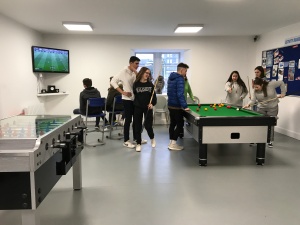



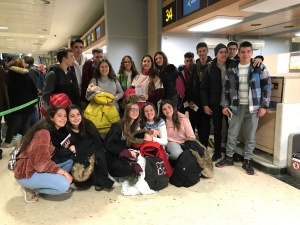






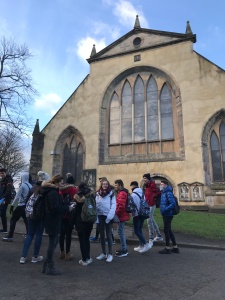


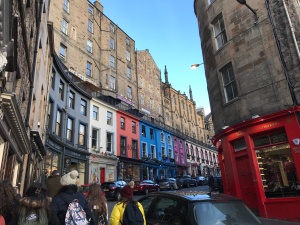

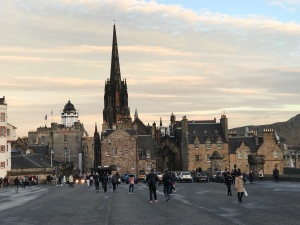










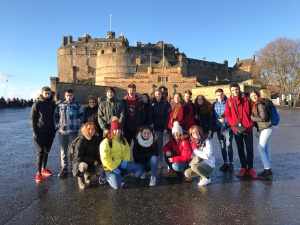

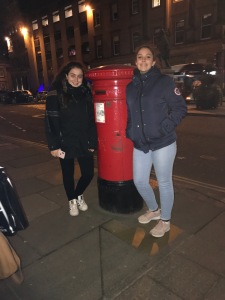





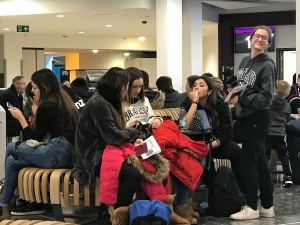































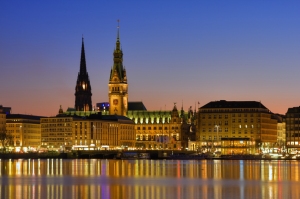 Next Monday, 12th October, a group of sixteen students and two teachers are coming to our school as part of a school exchange. They come from the city of Hamburg in the north of Germany.
Next Monday, 12th October, a group of sixteen students and two teachers are coming to our school as part of a school exchange. They come from the city of Hamburg in the north of Germany.